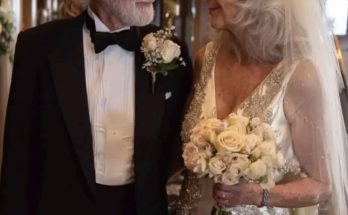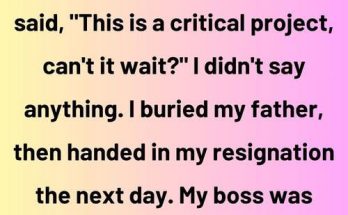When a loved one leaves this world, the weight of grief can feel almost unbearable. Planning a funeral becomes more than just organizing a service — it’s about protecting your heart, honoring the memory of the departed, and preserving peace during a deeply personal moment.
But as many of us know too well, not everyone deserves a seat at the funeral. In fact, when emotions are raw and tensions run high, the presence of the wrong person can cast a dark shadow over an already difficult day. And when you’re responsible for the arrangements, you’re also allowed — no, entitled — to set boundaries.
Whether you’re dealing with family estate issues, past betrayals, or strained relationships, knowing who not to invite can help you protect your loved one’s memory and your own mental health.
Here are 8 types of people you have every right to keep away from a funeral — and how to do it with dignity.
1. Those Who Hurt the Deceased in Life Have No Place at Their Goodbye
Protecting your loved one’s dignity is part of honoring their memory
If someone caused your loved one pain during their life — whether emotionally, physically, or spiritually — their appearance at the funeral isn’t a gesture of respect. It’s a violation.
It’s not “petty” to want to protect your family from reliving trauma. In fact, excluding someone who mistreated the deceased can prevent the ceremony from turning into a cruel reminder of past wounds.
This includes people who:
- Abused or manipulated the deceased
- Betrayed them in a deep, lasting way
- Ignored their cries for help during times of need
Allowing them into the funeral home or memorial space can feel like allowing a wolf into a sacred garden.
2. Toxic Family Members? You Don’t Owe Them an Invitation
Blood may be thicker than water — but peace of mind is worth more
Let’s be honest: sometimes, the most challenging people in our lives share our last name.
If a relative has a long history of manipulation, cruelty, or chaos, you don’t need to give them access to your grief. These individuals often show up not to mourn, but to stir the pot, whisper behind backs, or cause tension among siblings and extended family.
You are not obligated to allow someone who always brought pain into your home — or into your life — to bring more pain into your farewell.
3. People Who Create Drama or Conflict Should Be Kept Away
Funerals should be about love, not lingering family feuds
We all know someone who can’t help but bring up old grudges. Or who sees every gathering as an opportunity to “clear the air” or win an argument.
But a funeral is not the time or the place for confrontation. If someone has a pattern of stirring up drama, attempting to control family events, or shifting attention away from what matters, it’s perfectly reasonable to keep them off the guest list.
After all, your emotional well-being — and that of other grieving family members — must come first.
4. People Who Just Want Gossip or a Show Shouldn’t Be There
Not everyone who shows up is truly there to grieve
Sadly, some people attend funerals not out of love or respect — but because they’re curious. They want to know who’s crying, who’s not, who got what in the will, or who’s “lost it.”
Others use the moment to posture on social media, show off, or play the role of “grieving friend” for attention.
If someone’s motives feel off — or if they’ve never made a genuine effort to connect with your loved one — trust your instincts. A funeral is not a performance. It’s a deeply sacred goodbye.
5. Estranged Exes or Friends? Use Discretion
Case-by-case decisions are not only acceptable — they’re wise
Not every ex-partner or former friend deserves to be turned away. Sometimes, relationships end without bitterness. But in other cases, their presence may bring more pain than peace.
Was your mother’s ex-husband abusive? Would your father’s widow be devastated if his ex-girlfriend showed up uninvited? These are the questions that matter most.
You’re allowed to say, “Not today.” And if they truly care, they’ll understand — or attend a separate memorial instead.
6. Anyone Known to Arrive Intoxicated Should Be Kept Out
One person under the influence can ruin everything
We all know someone who can’t be trusted around alcohol — or worse, harder substances. And funerals, being emotionally heavy events, can be a dangerous setting for someone struggling with addiction or erratic behavior.
It only takes one slurred speech, one inappropriate outburst, or one unstable moment to disrupt an entire room.
If a person has a pattern of showing up intoxicated or behaving unpredictably, it’s okay — and often necessary — to let them know they are not welcome.
7. Attention-Seekers Have No Place at a Sacred Goodbye
Funerals should be about the departed — not about one person’s performance
There’s a certain kind of person who, no matter the setting, always makes it about themselves.
At funerals, they:
- Tell inappropriate stories that shift focus away from the loved one
- Cry loudly, but insincerely
- Argue over who “loved them more”
- Talk over the family or interrupt services
While some displays of emotion are genuine and beautiful, others are performative and disruptive. If you know someone like this, protecting your loved one’s final goodbye from attention-seeking chaos is not unkind — it’s respectful.
8. Those Who Disrespected the Family After the Passing
Grief reveals people’s true character — for better or worse
In the days after a passing, emotions run high. Unfortunately, it’s often when people show their ugliest side — arguing over money, posting cruel things online, or abandoning the grieving family when they needed support most.
If someone has:
- Started legal disputes
- Insulted your loved one or your family online
- Shown cruelty, insensitivity, or a complete lack of empathy
— then they’ve already disqualified themselves from attending.
You are allowed to protect yourself from further harm.
How to Enforce These Boundaries with Grace and Strength
You can be both kind and firm
If you know that certain individuals should not attend, take action ahead of time. Here’s how to do it:
1. Inform the funeral director or officiant.
They can help enforce your wishes discreetly and professionally.
2. Ask someone you trust to monitor the door.
A family friend or close relative can gently turn away any uninvited guests.
3. Consider making the service private.
A private, invitation-only ceremony ensures your control over the space and energy of the day.
Your Grief Deserves Protection
And so does your loved one’s memory
Saying goodbye is one of the most vulnerable experiences life offers. In that sacred space, you are allowed to feel safe, supported, and surrounded only by those who bring peace.
Funerals are not a public stage. They are for love, remembrance, and healing.
If someone doesn’t respect that — they don’t need to be there.



